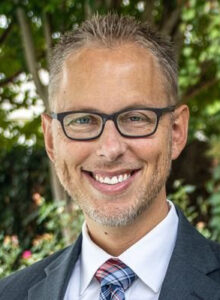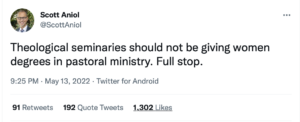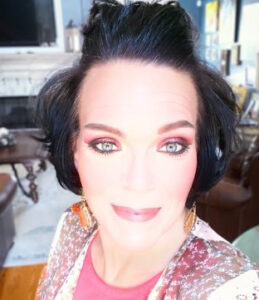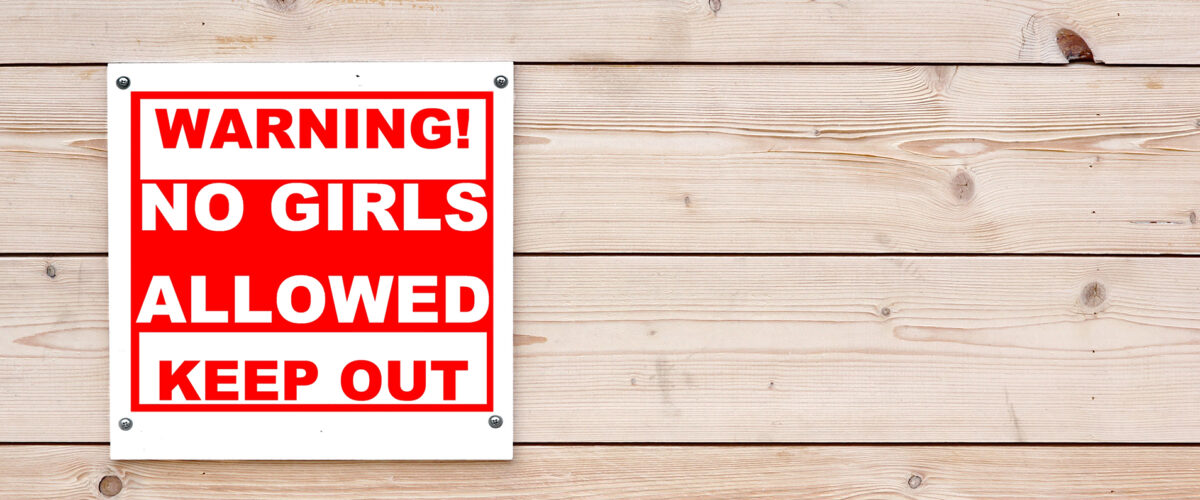Twitter was abuzz last week when Scott Aniol took to the platform to dump cold water on a woman who was celebrating her pastoral ministry degrees.
Aniol wrote, “Theological seminaries should not be giving women degrees in pastoral ministry. Full Stop.”
It seems that Southeastern Baptist Theological Seminary awarding a bachelor of arts degree in pastoral ministry to a woman irked him.
Theological Twitter quickly came to women’s defense and argued that women should earn these degrees and minister in the church. To this defense, Aniol replied: “It’s very telling that responses to my tweet about seminaries not giving women degrees in pastoral ministry have been mostly from people flaunting the right of women to be pastors. Everyone knows you get a degree in pastoral ministry for one reason.”

Scott Aniol is executive vice president and editor-in-chief of G3 Ministries and professor of pastoral theology at Grace Bible Theological Seminary.
For Aniol, people who think women should be pastors can be dismissed out of hand. He was simply frustrated that Southeastern Seminary would award a woman such a credential. Southeastern is a Southern Baptist Convention seminary that affirms the Danvers Statement on Biblical Manhood and Womanhood. Concerning women’s role in ministry the Danvers Statement says: “Some governing and teaching roles within the church are restricted to men (Gal 3:28; 1 Cor 11:2-16; 1 Tim 2:11-15).”
Several Twitter users attempted to point out to Aniol that women may seek degrees in pastoral ministry to minister to other women or outside of the church. Michael Bird, an egalitarian and the academic dean and biblical theologian at Ridley College in Melbourne, Australia, tried to ameliorate the feud with a brief blog post where he enumerated the many ways complementarians can welcome women who are educated for pastoral ministry by having them fulfill roles in women’s ministry.
Adam Greenway, president of a sister SBC school, Southwestern Seminary, tweeted about the historical commitment of his seminary to educating women for ministry.
These defenses simply caused Aniol to dig in further. Concerning Bird’s blog, Aniol tweeted: “When avowed egalitarians come out of the woodwork to defend SBC seminaries and their willingness to allow women in pastoral ministry degrees, that doesn’t help their claim that they are complementarian.”
The debate continues on the bird app. Should complementarians educate women for pastoral ministry or not?
 Despite being an egalitarian and feminist myself, I agree with Aniol. If complementarians really think women should not hold “governing and teaching roles” in the church, then they should not educate them for those roles. Full stop.
Despite being an egalitarian and feminist myself, I agree with Aniol. If complementarians really think women should not hold “governing and teaching roles” in the church, then they should not educate them for those roles. Full stop.
Ostensibly, the women who earn their degrees in pastoral ministry from Southeastern get the same education and credential as their male counterparts. Can the seminary really educate God-called, Spirit-filled women for pastoral ministry and then draw an arbitrary line indicating that women can minister in limited ways? In contrast, men with the same call, Spirit and education can minister in areas of power and influence not available to women?
Aniol is right: Southeastern Seminary should not be educating women for pastoral ministry. By doing so, the school gets credit for a level of openness to women ministering which is, in practice, false and hollow. The women who earn this degree will not be granted the same opportunities, status, power or influence as the men who earn the same degree.

Erin Harding earned a bachelor’s degree in pastoral theology from Southeastern Baptist Theological Seminary.
What is even more distressing than this inter-complementarian feud is that schools like Southeastern are not alone in educating women for work they never will do. Across the spectrum of Baptist institutions that stolidly affirm the importance of educating women for every level of ministry (including governing and teaching), female graduates similarly end up with fewer opportunities, lower status and less power and influence than their male counterparts.
According to the 2018, State of Clergywomen in the U.S. report, only 7% of Cooperative Baptist Fellowship churches are led by women pastors. The Alliance of Baptists boasts 42% of congregations led by women, but the number of Alliance churches is far fewer than the CBF. Ten percent of American Baptist churches are led by women. Despite Black Baptist churches being comprised largely of women, women represent less than 10% of church leadership and roughly 1% of pastors.
According to the same report, women graduating from accredited seminaries and divinity schools are more likely than men to lack a ministry placement upon graduation. These same women are more likely than men to seek employment outside the local church.
In June, Baptist Women in Ministry will release its 2021 State of Women in Baptist Life Report. I have little hope that the statistics will be better.
Aniol is right. It is disingenuous to continue to educate women for pastoral ministry in Baptist institutions of higher education when we all know that many of these educated, credentialed, called and even ordained women never will serve in the positions for which they were trained. Unless we are willing to do better in supporting these educated, called women, we might as well affirm TheoBros like Aniol and his colleague Owen Strachan.
I am neither disgusted nor incensed by Aniol’s tweet. I live in a world where, practically, he makes more sense than any empty claims of supporting women in ministry. I am incensed that educated, called, Spirit-filled women are still not afforded the same opportunities as men in churches and institutions that claim to support them.
We can and must do better. Leaders of congregations, institutions and denominational groups: Call BWIM so they can help you imagine ways to put your support of women in ministry into practice. Or at least send them some money so they can keep advocating for women.
Until we do something different, I’m siding with the misogynistic windbags at Grace Bible Theological Seminary and it makes me sick.

Anna Sieges
Anna Sieges serves as associate professor of religion at Gardner-Webb University in Boiling Springs, N.C. She loves shopping, discussing the Bible and romantic comedies. The opinions expressed here are her own.
Related articles:
Women in ministry: Strategically silent? | Opinion by Melody Maxwell
Women need more than your affirmation | Opinion by Laura Ellis
The untold story of Black women leaders in the Civil Rights Movement | Opinion by Marvin McMickle
Book traces the complex story of women’s influence within Southern Baptist Convention


